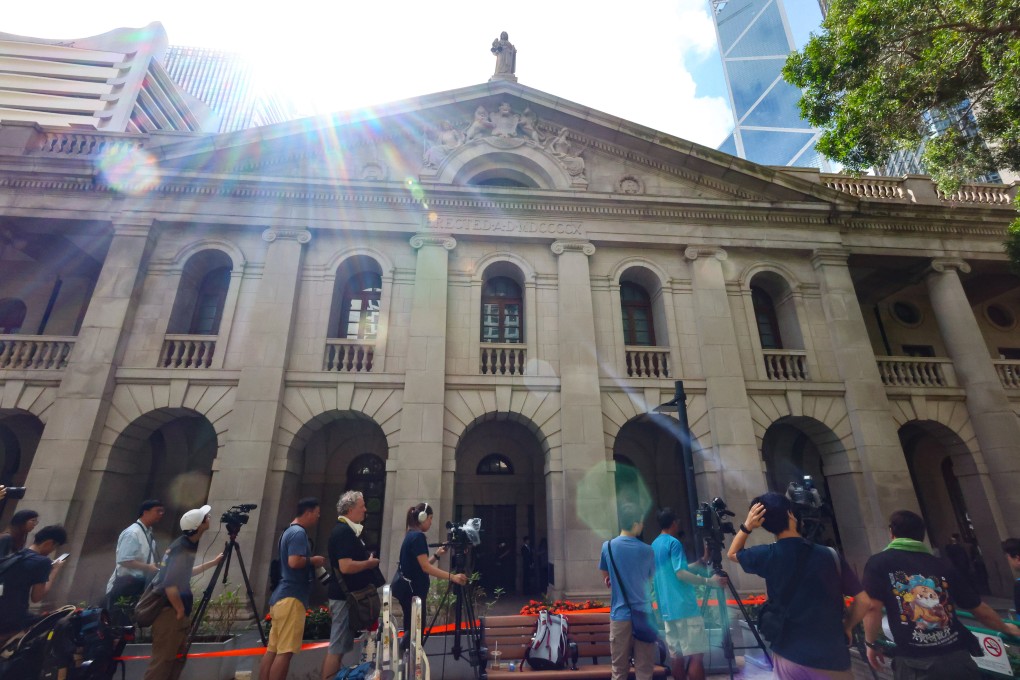Top Hong Kong appeal court doubts whether UK ‘lawful excuse’ defence can apply to 2019 protests
- British Supreme Court rulings say ‘lawful excuse’ applies where authorities are found to have violated basic rights of accused

Hong Kong’s top appeal judges have expressed doubts that a landmark ruling in Britain can be applied in the city to quash the convictions of media tycoon Jimmy Lai Chee-ying and six former opposition lawmakers for unauthorised assembly during a 2019 anti-government protest.
Lawyers for the appellants argued the trial judge failed to consider the reasonableness of the seven’s prosecution, undertaken despite the peaceful nature of the mass demonstration and a lack of police enforcement action on August 18, 2019.
The legal team quoted two landmark decisions by the UK’s Supreme Court in 2021 and 2022, which allowed for a statutory defence of lawful excuse in cases where the authorities were found to have violated the basic rights of an accused.
But the submission did not appear to impress the five judges on the bench.
Chief Justice Andrew Cheung Kui-nung questioned the need for a trial judge to re-examine the legality of a protest ban imposed under a legal framework which had already been upheld as constitutional after previous judicial challenges.